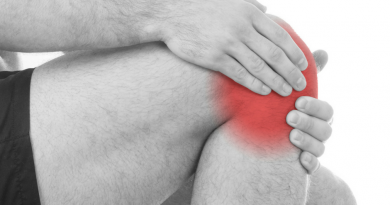Taking Care Of Your Health As You Age
Focusing on our mental and physical health becomes more important as we age. Healthy habits can help reduce symptoms of certain physical ailments, reduce depression and anxiety, promote weight loss, and contribute to a longer and healthier lifespan.
Older adults can age gracefully by making their health a priority. Below, we’ll discuss a few ways older adults can care for their health as they age, so keep reading to learn more!
If your loved one requires more hands-on assistance with an illness or accident, click here to learn more about convalescent care.
Maintain an exercise regimen.
Older adults who stay physically active after retirement can offset many aging effects. Exercising regularly can improve balance, which is particularly crucial for older adults with mobility issues.
Exercise also improves cognitive functions, which can help older adults with memory loss issues. As touched on above, regular physical activity lessens symptoms of depression and anxiety, and it can also reduce the risk of diseases like colon and breast cancer, osteoporosis, diabetes, high blood pressure, and heart disease.
Don’t worry! You don’t need to exercise for hours daily to see positive results. Any amount of exercise per day is better than none! However, older adults should try to get at least 30 minutes of exercise daily, five days per week, for the best results.
Follow a healthy diet.
Eating a well-balanced diet is vital to maintaining a healthy constitution and body, especially as adults age. Getting the proper nutrients into their bodies can help prevent older adults from succumbing to chronic conditions like heart disease.
Health experts recommend that older persons reduce their salt and saturated fat intake, which can help lower blood pressure, and focus on high-fibre foods, which can promote digestion and help lower cholesterol levels.
In addition to reducing the above symptoms, eating a healthy diet can help people reach their weight loss goals or help them maintain their current weight.
Schedule regular checkups
Older adults should schedule regular checkups with their doctor at least once a year, even if they are in seemingly good health. By regularly checking in with their doctor, older persons lessen the chance of developing preventative diseases. Regular medical checkups can also assist in catching preventive diseases early before they become high-risk, as this is the period when treatment is most effective.
Regular checkups with eye doctors and dentists are also essential to prevent or treat issues like cataracts, gum disease, and other problems that could worsen if left untreated.
Stay on top of medications.
Older adults who have prescription medications should administer them as directed by their physician to prevent any symptoms or side effects caused by taking pills irregularly.
Conversely, older adults should check with their doctor to see whether specific medications are still necessary or if they can reduce their pill intake. Taking too many contrasting medicines can cause adverse reactions in the body, especially if the wrong types of pills mix, so always check with your doctor or pharmacist on whether combining your prescribed medications will present any additional risk.
Of course, people shouldn’t stop taking medication without consulting their doctor first, so it’s crucial to stay on top of checkups.
Get plenty of sleep.
Sleep is critical for people to maintain a healthy lifestyle. Adults over 65 should sleep between 7 and 8 hours per night.
Lack of sleep can cause issues with cognitive function and memory, so if older adults begin to experience insomnia, they should speak to their doctor to figure out what’s causing the sleeplessness and discuss potential treatments and solutions.
People can adopt certain self-care practices to improve their sleep patterns. Taking magnesium and drinking chamomile tea before bed can help a person to relax and fall asleep faster. Disconnecting from devices 30 minutes before going to bed can also improve a person’s sleep cycle.
Practice good dental hygiene.
Teeth and gums are critical parts of the body to maintain, as keeping on top of their cleanliness can prevent inflammation in the mouth, which can help manage other inflammatory conditions such as heart disease and diabetes.
To properly look after their teeth and gums, people should brush their teeth twice daily, floss daily, and regularly clean dentures (if applicable). Health experts recommend using fluoride-based toothpaste and a soft-bristled toothbrush for the best results.
Not only will practicing good dental hygiene prevent potential diseases, but it will also prevent bad breath and whiten the teeth.
Pay attention to warning signs.
As adults age, they may begin to attribute their mood and energy issues to the aging process. However, feeling constantly exhausted, depressed, and ill is not normal at any point in the aging process and should not be ignored.
Older adults should pay attention to the following warning signs:
- Rapid weight loss
- Wounds that won’t heal
- Feeling confused constantly
- Swelling with marks and discoloration not caused by an injury
- Blurred vision or loss of vision
- Excessive sweating
- Issues with speaking and/or swallowing
- Lack of balance and coordination
- Numbness and/or tingling on one side of the body
- Pressure on the chest
- Sudden bouts of weakness or dizziness
- Shortness of breath
Any of the symptoms mentioned above could be side effects of a potential medical issue, such as depression, stroke, cataracts, and other health problems that require immediate attention. These symptoms could worsen and become a more significant health issue if left untreated.
How to maintain your health and age gracefully — Conclusion
Older adults can enjoy their retirement years in an active, fulfilling way by prioritizing their health. Eating healthy foods, exercising, adopting good hygiene practices, staying on top of checkups, and looking out for potential warning signs can help older adults live longer and healthier lives.
If your older loved one is currently experiencing issues with their health, they may need to adopt one or a few of the practices mentioned above. We recommend going through this checklist with your relatives to help them determine which aspects of their health should be their top priority.



